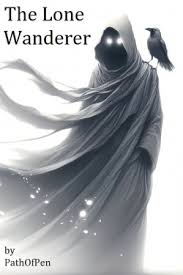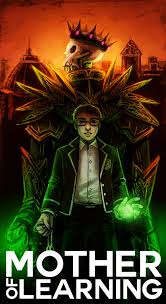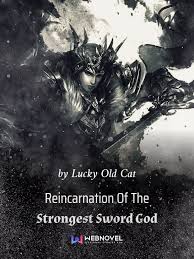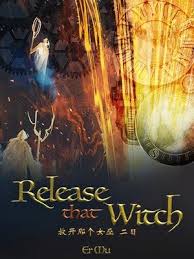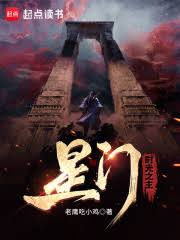The Story in 3 Sentences
Percy was born with little hope of standing out—just another face in a world ruled by bloodlines and class, starting with the lowest Red core and mocked as a waste by his peers and scorned by the powerful.
When his bloodline awakens with the power to send clones across infinite worlds, he seizes the chance to shatter expectations by exploring strange realms teeming with danger and returning with priceless treasures like divine techniques and the seed of a second mana core.
Despite facing opposition from Great Houses, scheming titans, and invading gods who will do anything to crush him, Percy masters alchemy to brew the elixirs he needs to advance on his road to the apex where even a so-called waste can reach the stars.
Why It Stands Out
1. The Multiverse Mastery Mechanic
The Lone Wanderer transforms standard LitRPG progression into something genuinely fresh through Percy’s unique bloodline ability to send clones across infinite worlds, creating a strategic layer where each clone’s discoveries compound his power in ways that feel both innovative and deeply satisfying. This isn’t just another power fantasy—it’s a carefully constructed system where knowledge becomes the ultimate currency, forcing Percy to synthesize information from countless realities to overcome limitations that would cripple ordinary cultivators.
2. Alchemy as the Heartbeat of Progression
While many cultivation stories treat alchemy as a side skill, here it becomes Percy’s lifeline and primary differentiator, requiring him to master complex recipes and rare ingredients to create the very elixirs that fuel his ascent in a world that denied him access to standard advancement paths. The detailed attention to alchemical processes creates tangible stakes—each failed experiment could mean death, while success unlocks doors that even the Great Houses struggle to breach.
3. The Underdog’s Calculated Rebellion
Percy’s journey avoids the trap of mindless revenge by transforming his perceived weaknesses into strategic advantages, using his “waste” status as camouflage while methodically building power through unconventional means that keep readers constantly guessing how he’ll turn the next impossible situation to his favor. His high willpower and determination create a compelling contrast against the entitled elites who underestimated him from the beginning.
The Flaws Fans Debate
Some readers find Percy’s personality disappointingly generic, with certain reviewers noting he has tendencies that clash with the serious cultivation world he inhabits.
The world-building receives mixed feedback, with some praising the fast-paced plot that keeps the story moving through strategic time jumps, while others criticize it as simple compared to more intricate cultivation universes.
A significant debate centers on whether the clone mechanic adds meaningful depth or merely serves as a convenient plot device to explain Percy’s rapid advancement without proper character development between power spikes.
Must-Experience Arcs
Ch. 15-42: The Alchemical Awakening – Percy’s desperate search for basic alchemy knowledge leads him to a ruined laboratory where he discovers fragmented texts that become the foundation of his self-taught mastery, forcing him to experiment with dangerous combinations that nearly kill him multiple times.
Ch. 120-155: The Shadow Clone Rebellion – When Percy’s clones develop independent consciousness, they challenge his authority and reveal hidden aspects of his bloodline power, creating a crisis that forces him to confront whether he’s becoming the kind of ruler he initially rebelled against.
Ch. 280-315: The Gods’ Gambit – Percy uncovers evidence of an impending invasion by otherworldly entities who view his multiverse-hopping ability as a threat, leading to a high-stakes alliance with former enemies against a common foe that reshapes the entire cultivation world’s power structure.
Killer Quotes
“Born at the lowest grade, nobody thought Percy would amount to much. Everything changes when his bloodline manifests in an unexpected way.”
“They’ll do anything to crush him before he can prove that even a so-called waste can reach the stars.”
“Exploring strange realms teeming with danger, Percy returns with priceless treasures: divine techniques, obscure knowledge, and even the seed of a second mana core stolen from an advanced civilization.”
Cultural Impact
The Lone Wanderer has developed a dedicated following on Scribblehub with readers praising how it transforms standard LitRPG progression into something genuinely fresh through its unique multiverse mechanics.
Fans have created popular memes comparing Percy’s determination to other underdog protagonists, with the “Percy Never Gives Up” image macro becoming a staple in LitRPG discussion groups across Reddit and Discord.
Despite being labeled “ongoing” with 383+ chapters, the series saw a significant surge when the author dropped multiple chapters as special gifts, demonstrating the strong connection between creator and audience.
Final Verdict
Start Here If You Want:
A fresh take on the cultivation genre that avoids tired tropes through innovative multiverse mechanics and strategic progression.
A protagonist whose underdog status feels earned rather than contrived, with each victory requiring genuine sacrifice and clever problem-solving.
A story that respects your time with fast-paced plotting that keeps the narrative moving through well-placed time jumps that never lose narrative coherence.
Study If You Love:
LitRPG systems that feel logically consistent and deeply integrated with character development rather than mere power escalation.
Alchemy-focused cultivation stories where the process matters as much as the results, creating authentic stakes in every experiment.
Underdog narratives where the protagonist’s greatest weapon is their mind rather than raw power or special lineage.
Avoid If You Prefer:
Extremely detailed world-building with intricate political structures at the expense of pacing.
Protagonists with complex, morally gray personalities rather than straightforward determination and willpower.
Stories that avoid any simplistic character traits in favor of more mature, nuanced character perspectives.
